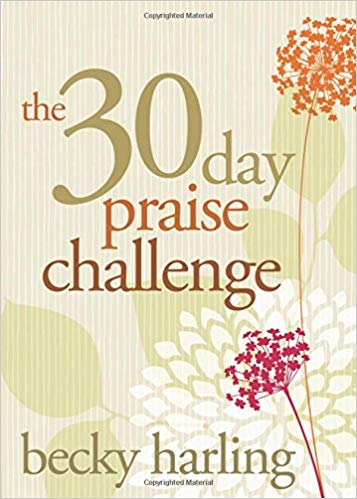"Did You Hear?"—Conquering the Gossip Addiction
In this Habits UPGRADE, Dawn encourages Christians to avoid gossipers and conquer the unseemly habit in themselves.
 It has been estimated that 80% of our conversations are spent on discussing other people and their habits. In other words, we gossip. A lot.
It has been estimated that 80% of our conversations are spent on discussing other people and their habits. In other words, we gossip. A lot.
While that seems high to me—I was thinking maybe 60%—it's still not something a Christian should ever do.
Gossiping is the act of spreading a rumor, or sharing idle talk—sometimes private information—to others in a personal, sensational and intimate way. The act may be malicious, or simply foolish; but God calls it sinful. A "gossiper" habitually spreads "juice" gossip.
Other similar activities include "talebearing," "whispering," giving an ill or "evil report," and slandering.
It's no small thing.
The Old Testament says, "He who goes about as a talebearer reveals secrets, but he who is trustworthy conceals a matter" and "He who goes about as a slanderer reveals secrets, therefore do not associate with a gossip" (Proverbs 11:13; 20:19).
Slanderers are called fools (Proverbs 10:18), and whisperers hurt and destroy others (Proverbs 18:8).
Have you ever noticed how gossip is usually passed on in whispers? We don't want others to know we're sharing "secrets." Whispering creates conflict, so we need to be careful not to add fuel to the flames (Proverbs 26:20).
That's all Old Testament truth, but the New Testament is even more pointed.
The New Testament word for gossipers is also "whisperers," but also "babbler." Paul said the pagans were gossipers (Romans 1:29), but even those in the church could arrogantly slander others and gossip (2 Corinthians 12:20-21)—two of the sins that grieved the Apostle Paul.
Gossiping and whispering was a problem for idle young widows, Paul said (1 Timothy 5:13). He called them "busybodies." He instructed women not to be "malicious gossips" (1 Timothy 3:11).
Perhaps people who gossip think it's justified because the information is true; but gossip is sharing information that shouldn't be shared with people who are not part of the problem or the solution—even if it is the truth.
Pride may also be involved. We can delight in sharing something "confidentially" that we know others might not know.
Also, our "Did you hear?" information may not be loving or kind.
Listening to others' gossip makes us a willing accomplice (Proverbs 17:4), and it contaminates our inner life as well.
If we wouldn't say it directly to the person who is the subject of the information, we shouldn't ever share it with others. (Maybe there's one exception—if that person is in direct danger.)
So, maybe that 80% statistic is something we need to think about.
As I've pondered this, I thought of some hard questions Christ-followers probably need to ask themselves:
- Am I driven to tell others' "secrets"? Am I addicted to gossip—compulsive about it?
- Are people avoiding telling me things—maybe because they wonder if I will "pass it along" to others?
- When have I justified my whispering?
- Do I share "prayer requests" that are really gossip?
- Do people often approach me to share "juicy" information? What does that say about me?
- Have I ever betrayed a confidence in my sharing?
- How do I know the difference between good sharing vs. gossip? (Is there really a "fine line"? If so, what is it?)
- What do I feel like after I share information about others?
- Is God pleased by what I share with others?
- Is this a destructive habit I need to break?
The Bible warns repeatedly about gossip, so God thinks it is serious.
I need to take gossip as seriously as God does!
Sometimes we get caught up in a gossip session and aren't sure what to do. Like the old proverb, "We can't avoid the bird flying over our head, but we can prevent him from building a nest in our hair," there are a number of steps we can take to cut a gossip session short.
Five Steps to Take in Dealing with Gossipers
1. Confront Gossipers
Stand up to people who gossip by saying you don't want to know about what they're trying to tell you. Be polite yet firm. It's not refusing to participate, it's holding others accountable. Jesus holds high value on our words (Matthew 12:36-37).
2. Change the Subject
Sometimes we can distract people from gossiping by changing the subject. Remember Ephesians 4:29 and consider whether the words are "unwholesome" or helpful in building people up and encouraging them.
3. Challenge the Information
Pieces of information may be missing or incorrect. Sometimes by asking questions, we can figure out a problem in a shared story, or see how the gossip is unreliable. We can correct untruths and give those being attacked the benefit of the doubt until there is more proof. We may not have all the facts, or understand the motives of their hearts (1 Corinthians 2:11).
In the case of serious sin, there are biblical principles for confronting this through church discipline (Matthew 18:15-17; 1 Corinthians 5:1-13)—and it does not include gossip!
4. Choose Positive Conversations
Think about things that are excellent and praiseworthy (Philippians 4:8).
Consider that those being gossiped about also have positive qualities. Try to focus on and express those to others.
5. Call on the Lord
With all the gossiping going on, a good practice is to turn gossip targets into the objects of our prayers. Isn't it better to talk to the Lord instead of other people about the possible failings and negative stories we hear? We are to pray about everything (Philippians 4:6), and that includes the "whispers" of gossip.
We can ask the Holy Spirit to intervene if there is an actual problem, to overcome the attacks on good reputations, and to bless those who are persecuted through gossip. God wants us to be peacemakers (Matthew 5:9), and that begins with sincere prayers.
And if YOU have a Gossip Addiction, use these five steps on yourself!
- Confront the unwise use of your tongue.
- Change your thinking and consider ways to build others up.
- Challenge the information—be intentional about asking questions to discover truth before you jump into a gossip session.
- Choose transformed thinking (Romans 12:2) rather than the easy way of gossip.
- Call out to God for wisdom and the Holy Spirit for help in overcoming this sinful habit. You are already an overcomer in Christ (1 Corinthians 15:57). Lay hold of that power.
Instead of "Did you hear?," ask, "How can I get the victory today, Lord?"
Dawn Wilson, founder and President of Heart Choices Today, is a speaker and author,  and the creator the blog, Upgrade with Dawn. She is a contracted researcher/reviewer for women's teacher and revivalist, Nancy DeMoss Wolgemuth, at Revive Our Hearts, a blogger at TrueWoman.com, writes wiki-type posts at Christianity.com, and is a regular columnist at Crosswalk.com. She and her husband Bob live in sunny Southern California, and Dawn has traveled with Him in Pacesetter Global Outreach. They have two grown, married sons, three granddaughters and a rascally maltipoo, Roscoe.
and the creator the blog, Upgrade with Dawn. She is a contracted researcher/reviewer for women's teacher and revivalist, Nancy DeMoss Wolgemuth, at Revive Our Hearts, a blogger at TrueWoman.com, writes wiki-type posts at Christianity.com, and is a regular columnist at Crosswalk.com. She and her husband Bob live in sunny Southern California, and Dawn has traveled with Him in Pacesetter Global Outreach. They have two grown, married sons, three granddaughters and a rascally maltipoo, Roscoe.
Graphic adapted, courtesy of Ben White at Unsplash.
 Post a Comment → Posted on
Post a Comment → Posted on  Tuesday, October 20, 2020 at 9:28AM
Tuesday, October 20, 2020 at 9:28AM  " Dawn Wilson,
" Dawn Wilson,  "Whisperers,
"Whisperers,  Gossip,
Gossip,  Gossipers,
Gossipers,  Gossiping,
Gossiping,  Slander,
Slander,  Slanderers,
Slanderers,  Talebearers,
Talebearers,  Talebearing,
Talebearing,  Upgrade with Dawn Upgrade Your Life
Upgrade with Dawn Upgrade Your Life  Accountability,
Accountability,  Gossip,
Gossip,  Habits,
Habits,  Victory
Victory 






